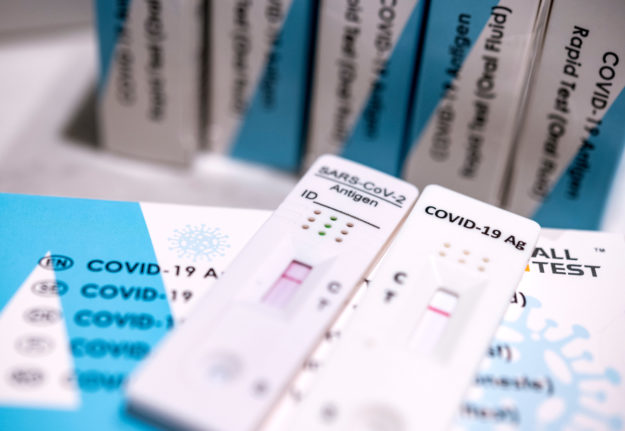How long will these restrictions be in place?
The new measures are expected to be in place until the middle of February, but will be assessed every two weeks, according to the Public Health Agency. The goal is to remove restrictions in line with increased vaccination rates, once the situation within healthcare has stabilised.
New measures which came into place on January 12th:
- Public indoor events with over 20 guests may only take place if all guests are seated, there are no groups of more than eight people, and groups are placed more than one metre apart. Exceptions exist for religious ceremonies, where standing guests will be permitted. For events with more than 50 guests, vaccine passes will be required in addition to all other recommendations.
- Markets, exhibitions or fairs with over 50 guests must require vaccine passes. There will also be a space requirement for venues: 10 square metres per person.
- Bars and restaurants must close by 11pm. Guests must be seated, with a maximum of eight people per group and one metre between groups.
- Adults should limit the amount of “close contacts” indoors by avoiding social events such as large dinners and parties. Earlier recommendations to avoid crowding, keep a distance, work from home and travel outside of rush hour continue to be in effect.
- Indoor cups and sport camps: A ban on indoor cups and sport camps will continue to be in place until January 31st. Training and competitions taking place as part of the normal season may be carried out subject to risk-reducing measures.
- Adult teaching and education: Universities are not required to move to distance teaching full-time, but may use it as a tool to limit crowding. Exams should take place as usual, taking risk-reducing measures into account.
The following restrictions and recommendations are still in effect:
- Keep a distance and avoid crowded areas.
- Work from home if possible, unless you need to physically be at work.
- Seated travellers only on long-distance public transport.
- Face masks are recommended on public transport if it is not possible to keep a distance.
- Shops, leisure activities and cultural activities may only allow one person per 10 square metres, and must reduce crowding. Activities aimed at children – such as sports training and competitions – are exempt.
- Teaching in schools should take place in person. Measures should be taken to reduce the spread of infection, such as being outdoors as much as possible, avoiding large groups indoors and preventing classes from mixing.
Measures to be introduced in the future:
In addition to the above measures, the Public Health Agency has asked the government to introduce the following restrictions (legally these require a government decision, whereas the Public Health Agency is able to make its own decisions on the above measures). There is no date for when these may come into force:
- Limit private events in rented venues to 20 guests.
- Limit public indoor events to a maximum of 500 guests, with a vaccination certificate requirement.
- Travel: Scrap a requirement for foreign visitors to show a negative Covid test to enter Sweden, but reintroduce the Covid pass for adults. The government confirmed to The Local that it had received this request but had not yet made a formal decision.



 Please whitelist us to continue reading.
Please whitelist us to continue reading.
I’m really glad that there will be hand sanitizer provided at my 5 hour long in person exams this week.